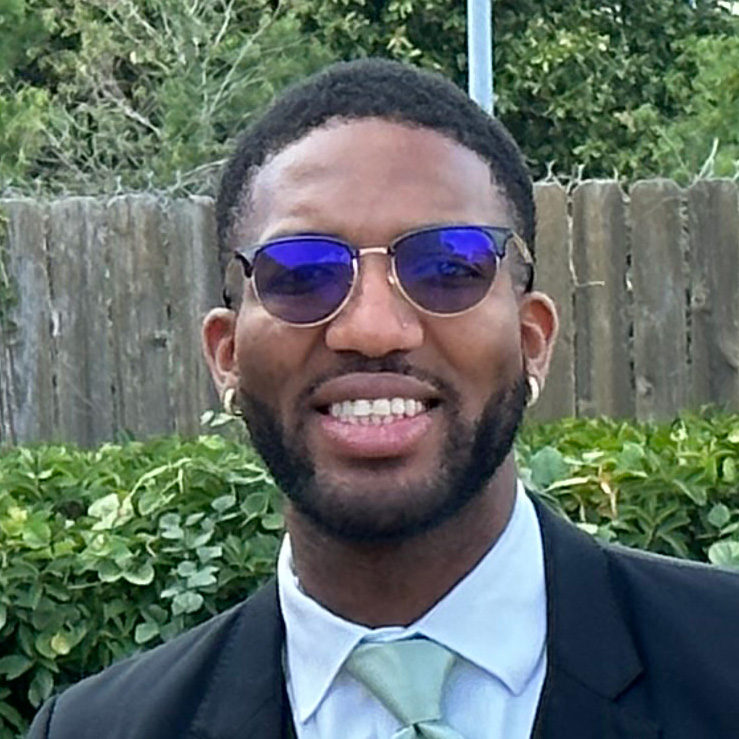
Professional School Counseling
Admissions
The Professional Counseling program is designed to provide knowledge and skills in order to obtain a School Counselor certification along with a program of coursework that satisfies the requirements for the Licensed Professional Counselor (LPC) license.
Both program tracks allow students to complete these two goals in concert within our Master of Science in Professional Counseling degree program. Request more information about the degree or program that aligns with your career goals. Notifications for All Certification Areas.
School Counselors.
School counselors work in public and private schools, grades K-12, community colleges, and universities. The role of the School Counselor varies depending on the age of the school population and their needs, but these are some common activities as listed in the TExES Preparation manual for School Counselors.
Their functions are to:
- Use their understanding of human development to provide developmental guidance programs, including counseling services, that meet the needs of all students
- Apply their understanding of human diversity to ensure that developmental guidance and counseling programs are responsive to all students.
- Employ their knowledge of the factors that may affect students' development and school achievement to promote students' ability to achieve their potential.
- Plan, implement, and evaluate developmental guidance programs, including counseling services, that promote all students' success.
- Provide comprehensive developmental guidance programs that promote all students' personal growth and development.
- Offer effective counseling services to individuals and small groups
- Utilize assessment results to identify students' strengths and needs, monitor progress, and engage in planning to promote school success.
- Communicate effectively with families and establish collaborative relationships that enhance work with students.
- Work collaboratively with other professionals and with community members to promote positive change and to facilitate student learning.
- Comply with ethical, legal, and professional standards relevant to the profession.

Degree Plan Requirements
Core Courses
42 semester hours:
- COUN 6318 Assessment in Counseling
- COUN 6321 Professional Orientation & Ethics
- COUN 6327 Theories of Counseling
- COUN 6333 Counseling Techniques
- COUN 6325 Career Education: Counselor Role
- COUN 6329 Group Counseling: Theory & Techniques
- COUN 6332 Counseling Across the Lifespan
- COUN 6345 Research & Program Evaluation
- COUN 6311 Multicultural Counseling
- COUN 6322 Abnormal Human Behavior
- COUN 6343 Advanced Psychopharmacology & Psychopathology
- COUN 6316 Addiction Counseling: Theory & Techniques
- COUN 6330 Advanced Counseling Ethics & Law
- COUN 6337 Crisis & Trauma Response
Field Placement Courses (9 Hrs.)
- COUN 6303 Practicum in Counseling
- COUN 6348 Internship I in Counseling
- COUN 6349 Internship II in Counseling
Required Specialty Courses (9 Hrs.)
- COUN 6310 Counseling in Schools
- COUN 6341 Advanced School Counseling
- COUN 6336 Counseling Children and Adolescents OR
- COUN 6338 Introduction to Play Therapy
Comprehensive Exam
The Professional Counseling Program at UHV requires that all master's level students pass a comprehensive examination. The Professional Counseling Program uses the Counselor Preparation Comprehensive Examination (CPCE), a national examination developed and provided through the Center for Credentialing and Education (CCE). Students are recommended to meet with their assigned faculty advisors early in the program to begin planning for taking the CPCE. Students are recommended to pass the exam before proceeding to COUN 6303 Practicum but are not required to. However, students are required to take the CPCE at least one semester before they graduate. All notifications regarding CPCE-related deadlines, changes in procedure, etc. will be sent via the Professional Counseling Orientation News and Events listserv. Students take the exam off-campus at a Pearson-VUE testing center. Upon registering for the exam, students will have to select a site/date/time of their choosing. Failure to meet deadlines listed for the semester may delay a student's progress in the program. The purpose of the exam is to assess student knowledge of counseling to ensure minimum competence before proceeding to Practicum. The CPCE will also provide collective feedback that can be used by the program in developing/adapting curriculum. Students must receive a favorable disposition (i.e., pass) on the comprehensive exam to be eligible to graduate. Students may retake their comprehensive examination the semester immediately following their first failed attempt. Students may take their comprehensive examination up to 2 times before being required to take an oral examination.
Certified School Counselor (CSC) Requirements:
Website: Texas Education Agency
To apply for school counselor certification, students must:
- Successfully Complete a School Counselor Preparation Program (UHV)
- Be endorsed by the School Counselor Preparation Program (UHV)
- Provide proof of passing the School Counselor Certification Exam (TExES 252)
- Provide proof of earning a master’s degree from an Accredited Institution of Higher Education (UHV)
- Effective September 1, 2023, the 2 years of classroom teaching experience are no longer required for the School Counselor certification


